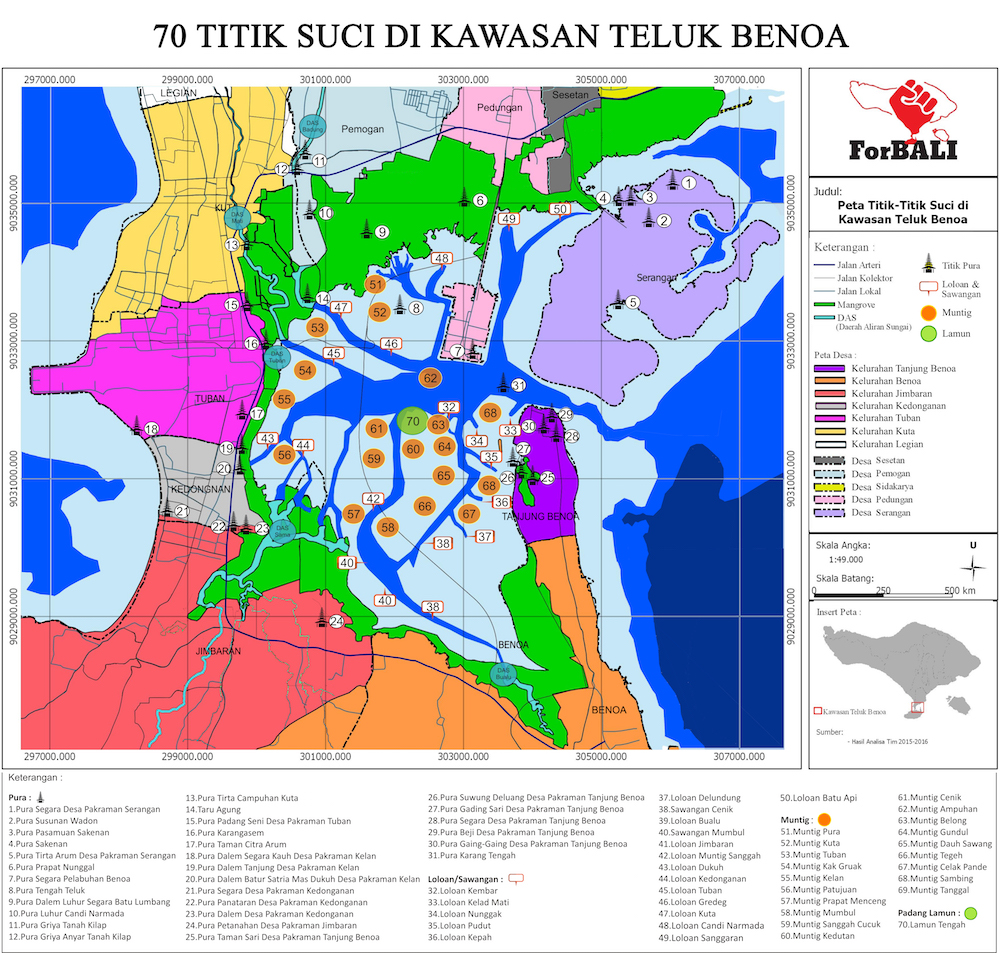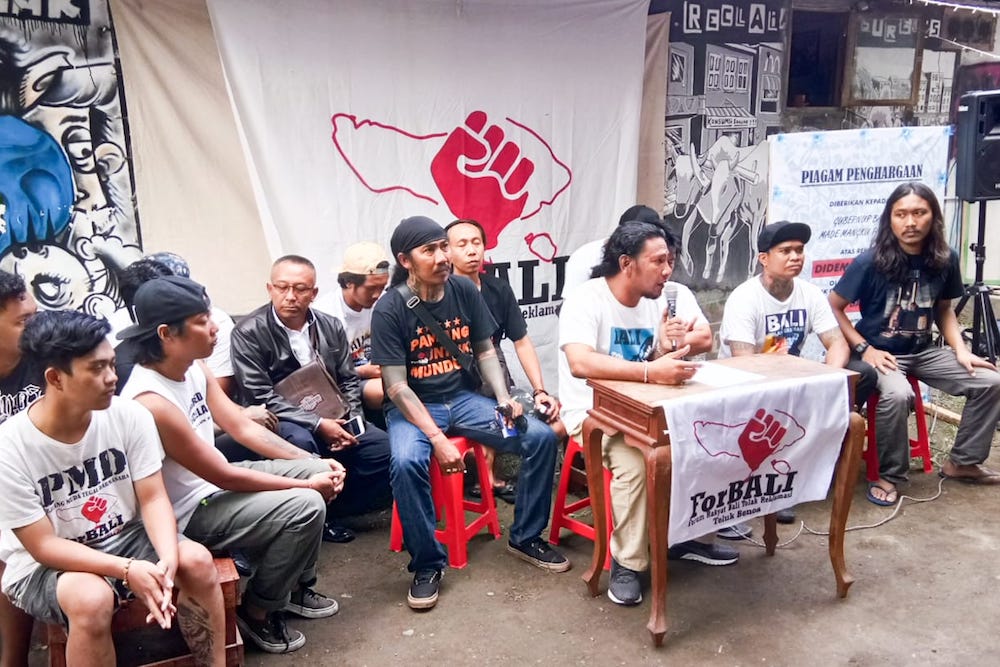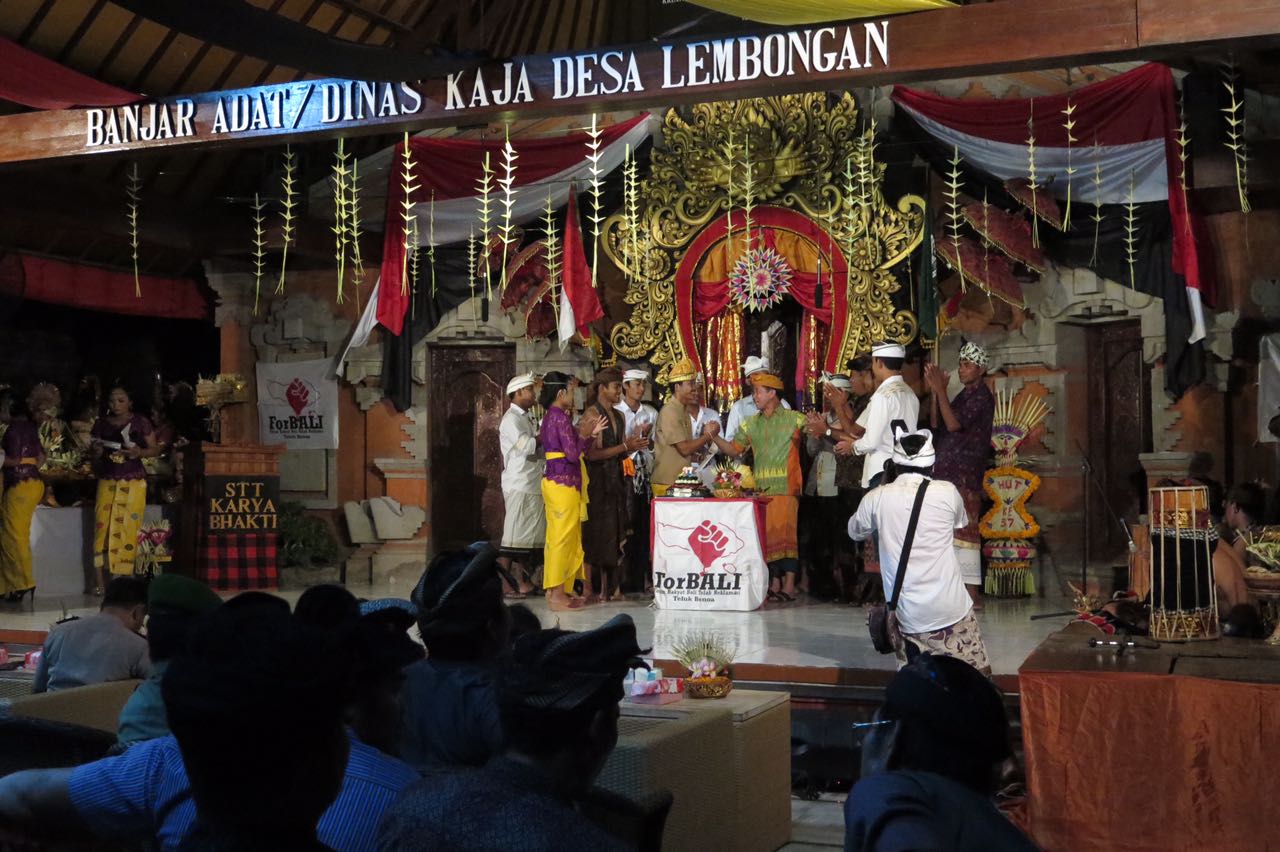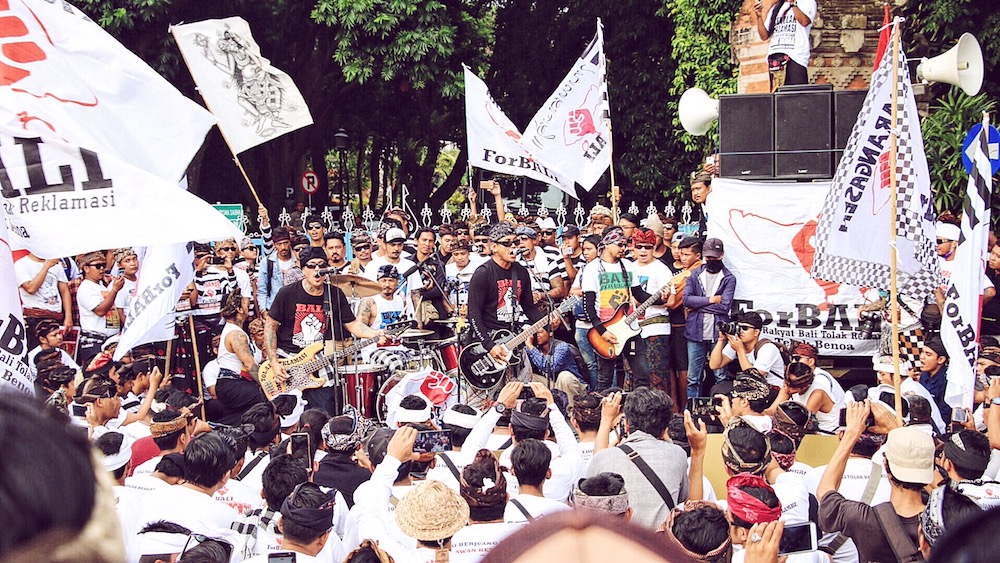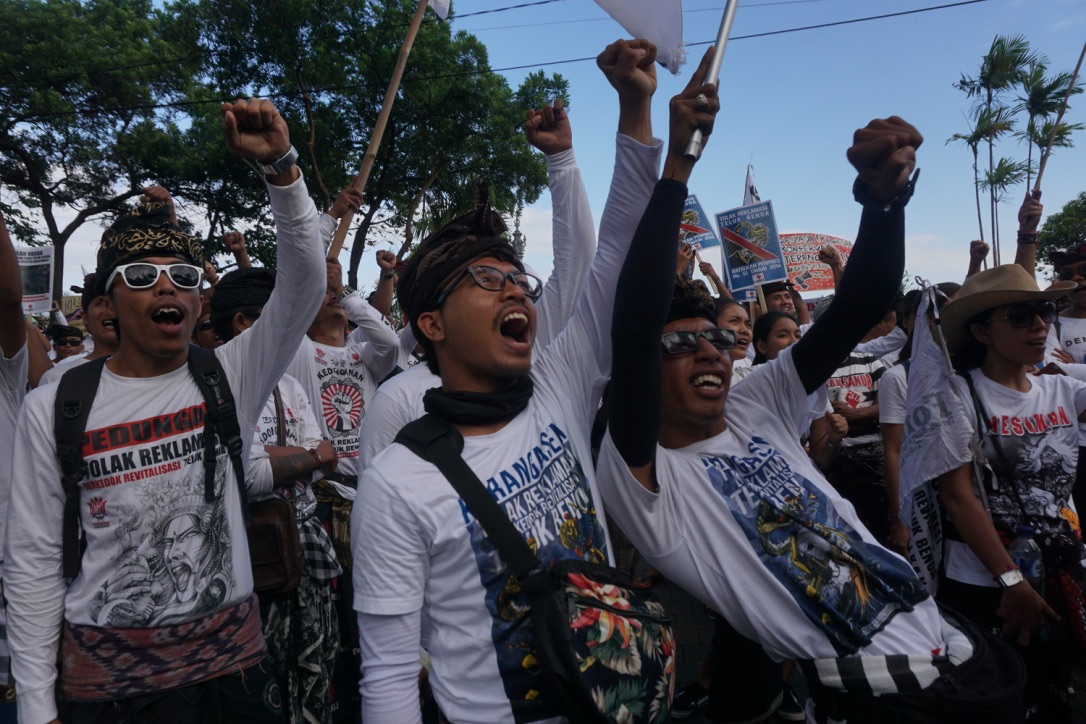Dear friends,
We, Balinese, fear that the Benoa Bay as one of the sacred site are going to be lost as the previous president of Indonesia, Susilo Bambang Yudhoyono, approved the Presidential Decree 51/2014 to reclaim an area of 700 hectares of Benoa Bay that covers at least 60 sacred sites.
We need support from expat in Indonesia and international NGOs to demand President of Indonesia to dismiss Presidential Decree 51/2014, and to restore the status of Benoa Bay as a conservation area and a sacred bay.
Kawasan suci (sacred sites) are places within the landscape that have a special meaning or significance in Balinese tradition. Hills, rocks, water springs, rivers, confluences, trees, plains, lakes, beaches, bays, temples and other natural features can be sacred sites. In coastal and sea areas, sacred sites may include features which lie both above and under the water.
Sacred sites acquire their status from their association with particular aspects of Balinese social and cultural tradition. This body of tradition is mainly concerned with the activities of ancestral beings and spirits, related with natural features, collectively known as ‘Bhatara’, ‘Sesuhunan’, and ‘sane meduwu gumi’ who invisibly (niskala) reside in the land and sea created the physical and social world that Balinese people now inhabit.
The sacred sites (kawasan suci) cannot be used for commercial purposes. The custodian of a sacred site is the local community known as ‘pengempon’ and ‘krama’ that has responsibility for that sites. Pengempon and krama are responsible for its management, keeping it safe and to make sure it is used for its proper use.
Balinese sacred sites are recognised and protected as an integral part of the Pararem/Awig-awig Desa Adat Bali (Bali Traditional Village Acts), the Decree of Indonesia Hindu Council (Bhisama Parisada Hindu Dharma Indonesia) Number 11/Kep/I/Phdip/1994, the Bali Provincial Decree (Perda Provinsi Bali) Number 16/2009, and the Presidential Decree number 45/2011.
The United Nations Declaration on the Rights of Indigenous Peoples was adopted by the United Nations in 2007. The declaration emphasizes the right of Indigenous peoples, some of which include the protection of sacred sites and their religious practices. Articles 11, 12, and 25 of the Declaration specifically addresses these rights. The Declaration recognizes and affirms the rights of indigenous peoples to their cultural, religious, and spiritual practices, to have private access to sacred sites (Arts. 12(1), 11(1)), as well as to maintain and strengthen their spiritual relationship with their traditionally held lands, territories, waters and coastal seas and other resources (Art. 25).
Article 11:
1. Indigenous peoples have the right to practise and revitalize their cultural traditions and customs. This includes the right to maintain, protect and develop the past, present and future manifestations of their cultures, such as archaeological and historical sites, artefacts, designs, ceremonies, technologies and visual and performing arts and literature.
2. States shall provide redress through effective mechanisms, which may include restitution, developed in conjunction with indigenous peoples, with respect to their cultural, intellectual, religious and spiritual property taken without their free, prior and informed consent or in violation of their laws, traditions and customs.
Article 12:
1. Indigenous peoples have the right to manifest, practise, develop and teach their spiritual and religious traditions, customs and ceremonies; the right to maintain, protect, and have access in privacy to their religious and cultural sites; the right to the use and control of their ceremonial objects; and the right to the repatriation of their human remains.
2. States shall seek to enable the access and/or repatriation of ceremonial objects and human remains in their possession through fair, transparent and effective mechanisms developed in conjunction with indigenous peoples concerned.
Article 25:
Indigenous peoples have the right to maintain and strengthen their distinctive spiritual relationship with their traditionally owned or otherwise occupied and used lands, territories, waters and coastal seas and other resources and to uphold their responsibilities to future generations in this regard.
With the Declaration, Balinese peoples have rights acknowledged by the international community of nations, including rights to sacred places both within existing reservation or territorial boundaries and beyond.
Several Balinese sacred sites are likely to be at risk if works were to be carried out without more detailed information being sought first.
Please support us to save Benoa Bay, our sacred sites!
Warm regards.
Balinese People


